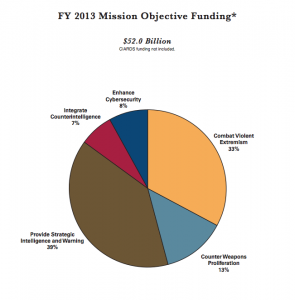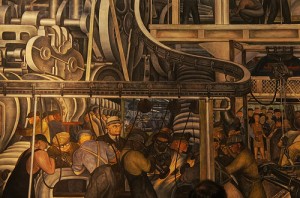In the weeks before Rick Snyder disenfranchised the city of Detroit, the Detroit News suggested the problem was the city was a bunch of deadbeats.
Nearly half of the owners of Detroit’s 305,000 properties failed to pay their tax bills last year, exacerbating a punishing cycle of declining revenues and diminished services for a city in a financial crisis, according to a Detroit News analysis of government records.
The News reviewed more than 200,000 pages of tax documents and found that 47 percent of the city’s taxable parcels are delinquent on their 2011 bills. Some $246.5 million in taxes and fees went uncollected, about half of which was due Detroit and the rest to other entities, including Wayne County, Detroit Public Schools and the library.
Delinquency is so pervasive that 77 blocks had only one owner who paid taxes last year, The News found. Many of those who don’t pay question why they should in a city that struggles to light its streets or keep police on them.
“Why pay taxes?” asked Fred Phillips, who owes more than $2,600 on his home on an east-side block where five owners paid 2011 taxes. “Why should I send them taxes when they aren’t supplying services?
Nevermind that — as DDay pointed out this week — the real deadbeats are the banks which have preyed on the city.
Detroit has been ravaged by an unending foreclosure crisis. Predatory loans trapped borrowers into monthly mortgage rates they couldn’t pay, with lenders particularly targeting lower-income minority areas like Detroit. Many of those homeowners are gone now, evicted from their properties. It is a pattern that has sunk property values, making the high property tax rates in Detroit even more unsustainable. But it also has turned banks into the real deadbeats, depriving the city of revenue.
In a foreclosure, the property reverts back to the bank, which then becomes responsible for all maintenance and upkeep, as well as any fees. Some banks simply ignore these responsibilities and refuse to pay taxes or keep the vacant property in good order. The more clever banks stick evicted homeowners with the bill.
Across the country and particularly in Detroit, banks have engaged in “walkaways,” where they start foreclosure proceedings but then find them too costly to complete. They choose not to finish the legal steps to foreclosure, leaving the properties vacant. Banks that walk away from homes do not have to notify the city, or even the borrower, that they have abandoned the foreclosure process. Borrowers kicked out of their homes then find themselves still responsible for property tax payments.
We know this kind of behavior has occurred all over the country, leaving foreclosure victims stuck with the “zombie title” to an old property for years. And Detroit is ground zero for the phenomenon. A 2010 report of the Government Accountability Office found 500 bank walkaways in just four Detroit zip codes.
Meanwhile, some of the very same banks that have gutted the tax base of the city have profited off schemes to keep it afloat, including $350 million in derivatives gone bad.
Today we learn that Kevyn Orr, the bankruptcy lawyer Rick Snyder has appointed to cure Detroit of its so-called deadbeat problem is himself a deadbeat. A far bigger deadbeat that the Detroit residents he has been made dictator of.
State records show Kevyn D. Orr, who was appointed emergency manager on Thursday, has two outstanding liens on his $1 million home in Chevy Chase, Md., for $16,000 in unemployment taxes in 2010 and 2011. Two other liens of more than $16,000 in unemployment and income taxes were satisfied in 2010 and 2011, records show.
[snip]
The Washington, D.C., bankruptcy attorney blamed the problems on an outside accountant hired to file his tax returns, said Sara Wurfel, a Snyder spokeswoman.
“There was apparently an oversight related to a childcare provider unemployment insurance payment,”
[snip]
A lien for $7,022 in unemployment taxes for the 2008 tax year was entered on July 17, 2009, and satisfied on Aug. 20, 2010. Another for $9,409 in income taxes for the 2008 tax year against Orr and his wife, Dr. Donna Neale, was entered on Aug. 11, 2010, and satisfied on Oct. 3, 2011.
Two other liens over unemployment taxes — $6,985 for the 2010 tax year and $9,201 for the 2010-11 tax years — are outstanding, said Frost, who reviewed the records.
Using the numbers from the original Detroit News article, the average tax due from 2011 per delinquent Detroit property owner is about $1,790. Orr has been underpaying MD several times that every year, effectively asking the state to float his unemployment insurance obligations for two years until he gets around to paying them.
And this is the guy Snyder thinks will rescue Detroit.
You know what might have vetted Orr well enough to discover he himself is a deadbeat and therefore probably not the one to convince Detroit residents to pay their taxes? An election.
Here’s another neat detail: The median household income in Detroit is $27,862. Orr consistently owes about $7,000 just in unemployment insurance for his nanny. It seems like most Detroit residents could get themselves a raise if only they tended Orr’s kids.
 The Washington Post just published an excellent package on the FY2013 Black Budget for intelligence. I’m reading through the summary now.
The Washington Post just published an excellent package on the FY2013 Black Budget for intelligence. I’m reading through the summary now.

